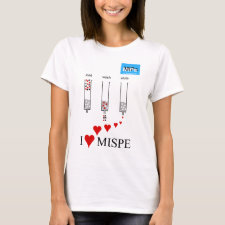
Authors: Miura C, Funaya N, Matsunaga H, Haginaka J
Article Title: Monodisperse, molecularly imprinted polymers for creatinine by modified precipitation polymerization and their applications to creatinine assays for human serum and urine.
Publication date: 2013
Journal: Journal of Pharmaceutical and Biomedical Analysis
Volume: 85
Page numbers: 288-294.
DOI: 10.1016/j.jpba.2013.07.038
Alternative URL: http://www.sciencedirect.com/science/article/pii/S0731708513003440
Abstract: Molecularly imprinted polymers (MIPs) for creatinine were prepared by modified precipitation polymerization using methacrylic acid as a functional monomer and divinylbenzene as a crosslinker. The prepared MIPs were monodispersed with a narrow particle size distribution. Binding experiments and Scatchard analyses revealed that two classes of binding sites, high- and low-affinity sites, were formed on the MIPs. The retention and molecular-recognition properties of the MIPs were evaluated by hydrophilic interaction chromatography using a mixture of ammonium acetate buffer and acetonitrile as a mobile phase. With an increase of acetonitrile content, the retention factor of creatinine was increased on the MIP. In addition to shape recognition, hydrophilic interactions seemed to enhance the recognition of creatinine on the MIP. The MIPs' molecular-recognition ability was specific for creatinine; the structurally related compounds such as hydantoin, 1-methylhydantoin, 2-pyrrolidone, N-hydroxysuccinimide and creatine were not recognized. Furthermore, the creatinine concentrations in human serum and urine were successfully determined by direct injection of the deproteinized serum and diluted urine samples onto the MIP
Template and target information: creatinine
Author keywords: molecularly imprinted polymer, Modified precipitation polymerization, bioanalysis, creatinine, creatine



Join the Society for Molecular Imprinting

New items RSS feed
Sign-up for e-mail updates:
Choose between receiving an occasional newsletter or more frequent e-mail alerts.
Click here to go to the sign-up page.
Is your name elemental or peptidic? Enter your name and find out by clicking either of the buttons below!
Other products you may like:
 MIPdatabase
MIPdatabase









